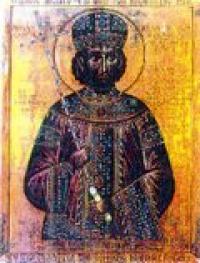Home | former monarchy | Roman Emperor
|
|
|
Roman Emperors refused to be considered "kings", instead claiming to be leaders of a republic, however nominal. The first Emperor, Augustus, resolutely refused recognition as a monarch. Although Augustus could claim that his power was authentically Republican, his successor, Tiberius, could not convincingly make the same claim. Nonetheless, the Republican institutional framework (senate, consuls, magistracies etc.) was preserved until the very end of the Western Empire. By the time of Diocletian, Emperors were openly "monarchs", but the contrast with "kings" was maintained: Although the imperial succession was, de facto, generally hereditary, it was only hereditary if there was a suitable candidate acceptable to the army and the bureaucracy so the principle of automatic inheritance was not adopted. The Eastern (Byzantine) emperors ultimately adopted the formal title of Basileus, which had meant king in Greek, but became a title reserved solely for the "Roman" Emperor (and the ruler of the Sassanid Empire). Other kings were referred to as regas. In addition to their pontifical office, Emperors were given divine status: initially after their death, but later from their accession. As Christianity prevailed over paganism, the emperor's religious status changed to that of Christ's regent on earth, and the Empire's status was seen as part of God's plan to Christianize the world. The Western Roman Empire ended in 476 and the Eastern Roman Empire in 1453. |




 RSS
RSS